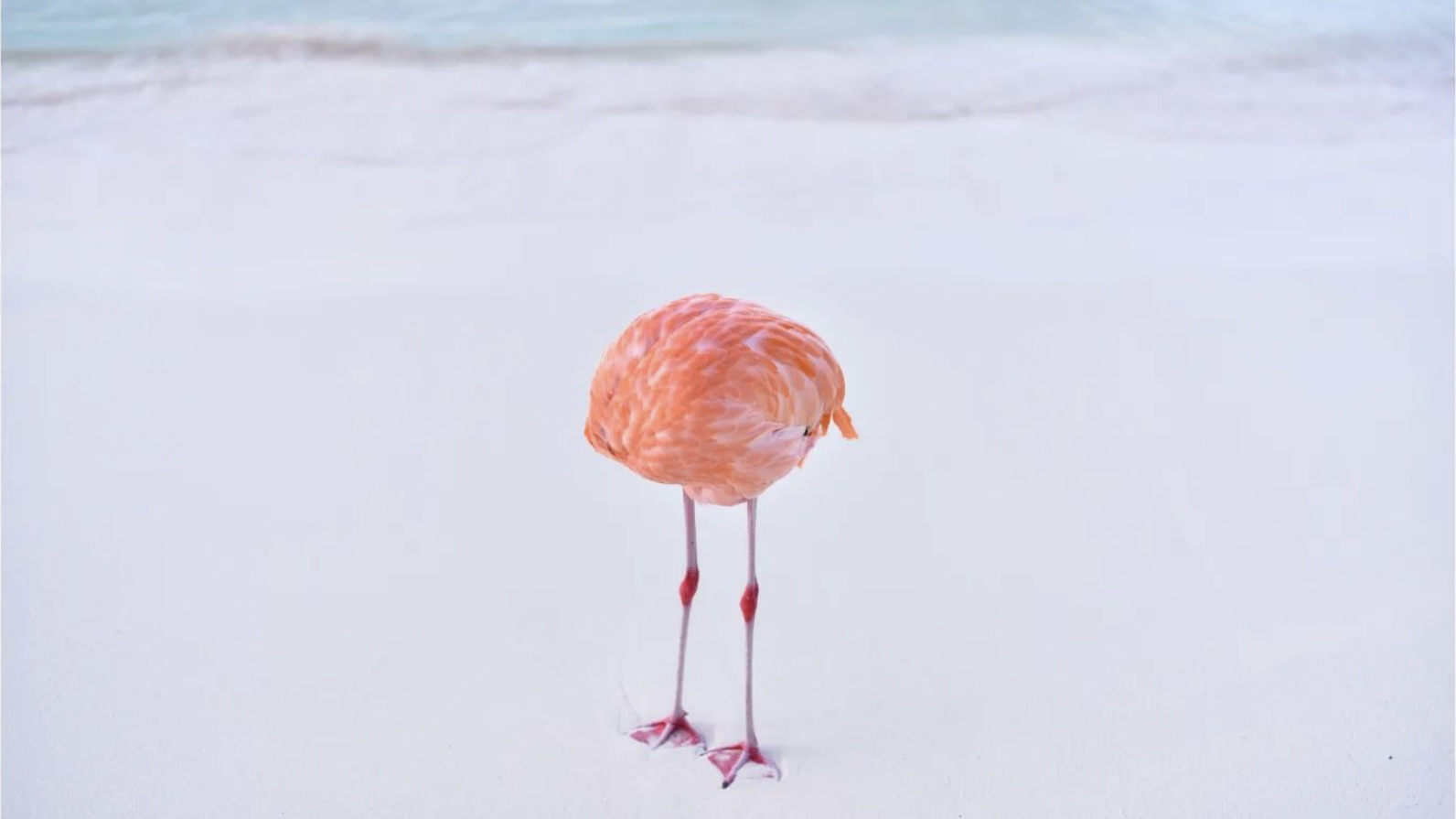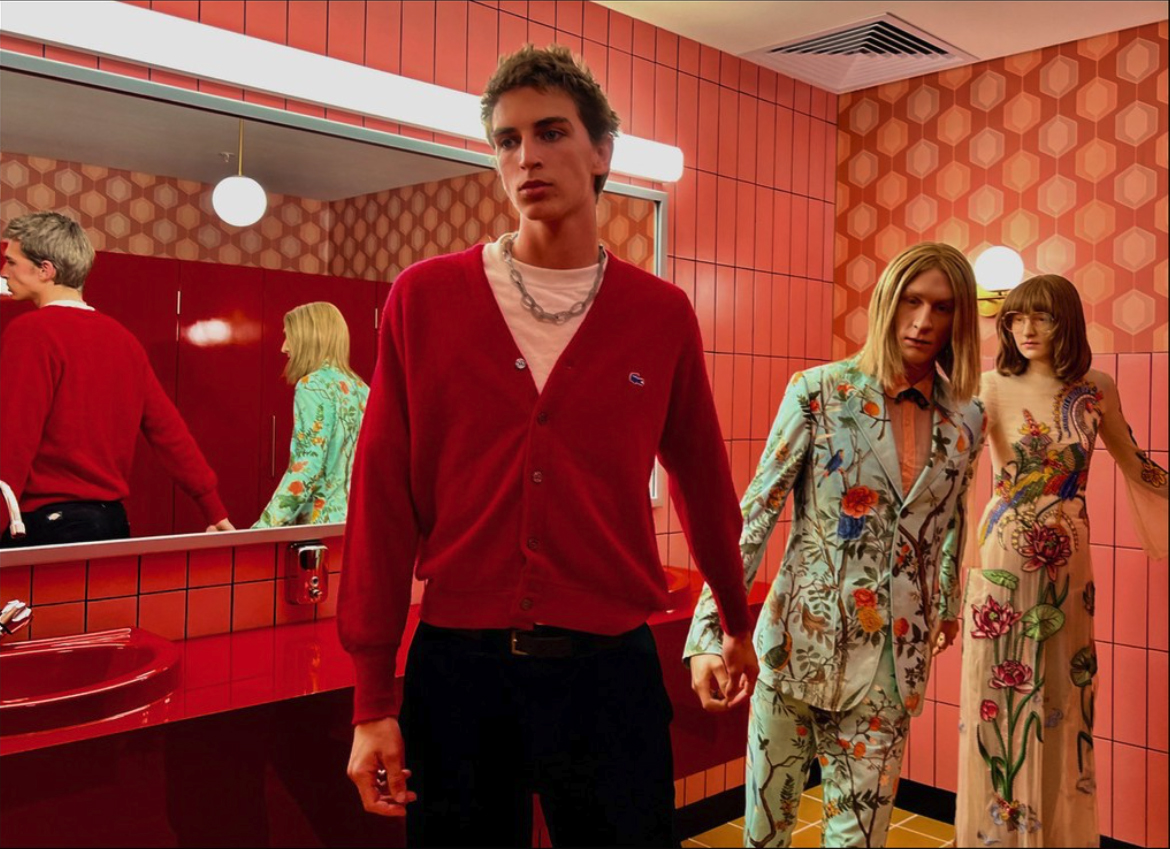An entirely real photo wins an AI photo contest – and photographers finally have something to smile about
Photography strikes back

Sign up for breaking news, reviews, opinion, top tech deals, and more.
You are now subscribed
Your newsletter sign-up was successful
Frighteningly realistic AI-generated images are winning photo contests and generative AI tools are powering our favorite photo editors. A tidal wave of AI-generated images has made it practically impossible to know what is and isn't real.
However, there's finally a story for photographers to smile about – a win for humans, if you will.
A surreal but entirely real photograph called 'Flamingone' by Miles Astray (real name, I kid you not) impressed judges of the prestigious 1839 photo contest to be awarded bronze and claim the people's vote award, which comes with a cash prize. Trouble for the contest organizers is that Astray's winning image was entered into a newly formed AI category.
The surreal image above was deemed so unreal that the astute panel of judges, which includes people from The New York Times and Getty Images, among others, were duped and voted for it, as did the public; awards that were consequently stripped from Astray after the real nature of the image became clear.
The image turns out to be a simple holiday snap of a seemingly headless flamingo taken on a white sand beach in Aruba. It captures the moment the flamingo is preening, and therefore, its head and neck are hidden. This is a real subject, place, and moment in time, beating entirely algorithm-based AI-generated entries.
Astray said, “It occurred to me that I could twist this story inside down and upside out the way only a human could and would, by submitting a real photo into an AI competition. Of course, I deliberately chose a picture that is so surreal, to the point of unbelievable, that it could easily be attributed to AI being at play.”

It flips 2024's photo contest narrative on its head, and the competition organizers released this statement:
Sign up for breaking news, reviews, opinion, top tech deals, and more.
“Our contest categories are specifically defined to ensure fairness and clarity for all participants. Each category has distinct criteria that entrants’ images must meet. His submission did not meet the requirements for the AI-generated image category. We understand that was the point, but we don’t want to prevent other artists from their shot at winning in the AI category."
“We hope this will bring awareness and a message of hope to other photographers worried about AI.” On Astray's blog, he said the contest organizers "had a surprising reaction that really made my day," and "I entered this actual photo into the AI category of 1839 Awards to prove that human-made content has not lost its relevance, that Mother Nature and her human interpreters can still beat the machine, and that creativity and emotion are more than just a string of digits."
Astray's sentiment reminds me of Nikon Peru's playful campaign toting 'natural intelligence' with a series of otherworldly landscapes you can find for real in Peru, together with the sort of word prompts that you'd use in an AI generator to create such striking images.
What's next in the AI tale?
We can enjoy this story simply for what it is – a win for humans – but there's also a wider narrative at play: the industry is kicking back against AI and putting mechanisms in place to point out AI content, but real photos can also fall victim.

Instagram is tagging real photos as 'Made with AI' (but at the same time admitting that its system is easy to circumvent with fake images), while an iPhone shot was disqualified from a contest for looking too fake, and now this: another in a catalog of stories proving how hard it is to tell what's real and what's fake – though once Content Credentials is effectively rolled out it'll help photographers prove authenticity.
Photo contests are adapting to a future with AI in an attempt to distinguish the fake from the real – the fact there's an AI category in 1839's photo contest is one example – and there's still hope for real photography. This time, it's a victory for humans versus machines in what has felt at times like an otherwise one-sided battle since generative AI hit the mainstream.
I'm wondering what could be next in the photo contest tale: a contest using AI to judge entries and select the winners? God, I hope not – that would be the darkest twist of all.
You might also like

Tim is the Cameras editor at TechRadar. He has enjoyed more than 15 years in the photo video industry with most of those in the world of tech journalism. During his time as Deputy Technical Editor with Amateur Photographer, as a freelancer and consequently editor at Tech Radar, Tim has developed a deeply technical knowledge and practical experience with cameras, educating others through news, reviews and features. He’s also worked in video production for Studio 44 with clients including Canon, and volunteers his spare time to consult a non-profit, diverse stories team based in Nairobi. Tim is curious, a keen creative, avid footballer and runner, and moderate flat white drinker who has lived in Kenya and believes we have much to enjoy and learn from each other.